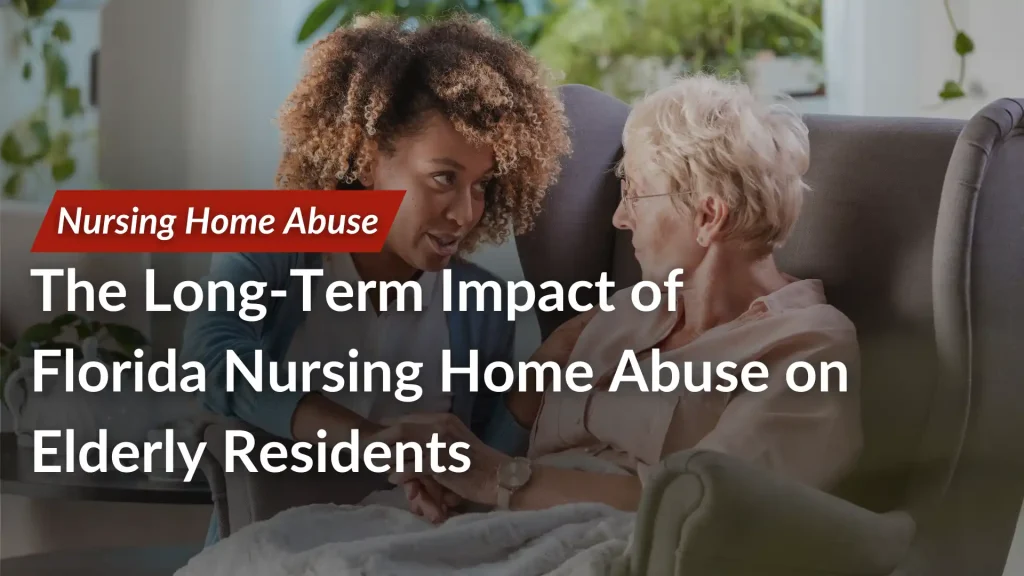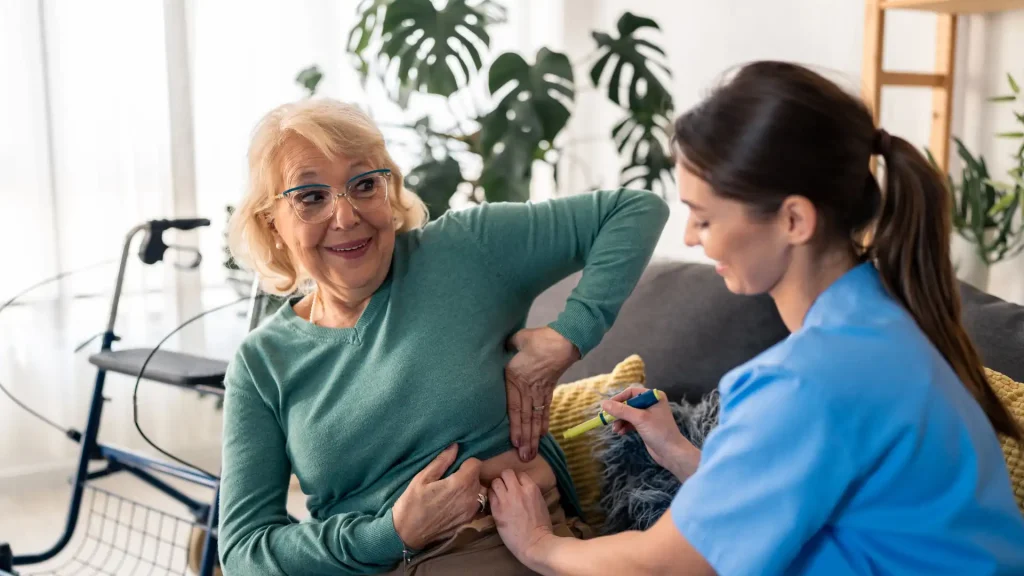
Abuse in nursing homes can leave lasting physical and emotional scars, changing nearly every part of an elderly resident’s life. Nursing homes are meant to offer a safe and caring environment, but when neglect or mistreatment happens, the damage often goes much deeper than what’s visible. From physical injuries to emotional pain, the effects can stay with residents long after the abuse ends.
Florida’s aging population makes this issue particularly significant in cities like Tampa, where long-term care facilities house thousands of vulnerable residents. Let’s explore the lasting implications of elder abuse in residential long-term care settings, how it affects elderly health outcomes, and what steps victims and families can take to pursue justice.
Understanding the Different Forms of Nursing Home Abuse
Abuse in nursing homes can take many forms, each leaving its own kind of lasting impact. Here are a few examples:
- Physical abuse—like hitting, pushing, or improperly using restraints—can lead to lasting problems, such as chronic pain or difficulty moving.
- Emotional abuse, including verbal insults or isolation, leads to depression, anxiety, and other psychological struggles.
- Sexual abuse is a deeply traumatic experience that can cause both emotional and physical harm.
- Financial abuse, where a victim of nursing home abuse is exploited, leads to a loss of financial stability and trust.
- Neglect, often subtle but equally harmful, involves failure to provide adequate care, food, or medical attention.
The National Center on Elder Abuse offers helpful resources to understand and address these problems, but recognizing the signs and taking quick action to protect victims is just as important.
Long-Term Effects on Physical Health
Physical injuries from abuse or neglect can have a lasting impact on elderly health outcomes. A single instance of mistreatment—like a fall caused by negligence—can lead to broken bones, reduced mobility, and chronic pain. Repeated incidents of physical harm in nursing homes may even shorten a resident’s lifespan.
As people age, the body doesn’t heal as quickly as it once did. For nursing home residents, neglect—like malnutrition, dehydration, or untreated infections—can quickly turn into serious, even life-threatening, health problems. Many older adults struggle to recover fully, leaving them with long-term issues that can affect their quality of life.
Emotional and Psychological Trauma
The emotional toll of abuse in long-term care facilities is often underestimated. Victims may experience intense feelings of fear, betrayal, and helplessness, which can develop into long-term emotional trauma. Depression, anxiety, and post-traumatic stress disorder (PTSD) are common outcomes for residents who have been emotionally abused or neglected, as noted by the World Health Organization (WHO).
Abuse affects more than just an elderly person’s mental health—it can also interfere with their ability to think clearly. For residents with dementia or Alzheimer’s, the impact is even more significant, as emotional abuse can worsen their symptoms and add to the challenges they already face.
Social Isolation and Loss of Trust
Residents who are abused or neglected often pull away from social interactions, which only adds to the emotional damage they’re dealing with. The betrayal of trust by nursing home staff or caregivers can make older adults hesitant to form new relationships, leaving them isolated and lonely.
Social isolation has been linked to a decline in physical and mental health, and for nursing home residents, it can increase the risk of premature death. This goes to show how elder abuse doesn’t stop at the initial harm—it triggers a chain reaction of adverse effects.
Financial Repercussions
When financial abuse occurs in long-term care facilities, the consequences can be devastating. Older adults often rely on fixed incomes or savings to cover their medical and living expenses. Financial exploitation by nursing home staff can leave victims unable to afford necessary care, forcing families to shoulder additional burdens.
The stress of financial abuse, combined with the emotional and physical harm caused by other forms of abuse, can diminish an elderly person’s sense of security and overall well-being.
Elder Abuse Recovery: Is Healing Possible?
Recovering from the effects of elder abuse requires a comprehensive approach that addresses both physical and emotional harm. Families need to get their loved ones out of the abusive situation right away and report what’s happening to the proper authorities. The National Center on Elder Abuse is a great resource to help you and your loved one work through this process.
After the immediate danger is dealt with, steps for recovery might include:
- Seeing a doctor to treat injuries and focus on better overall health
- Talking to a counselor or therapist to work through the trauma and regain emotional balance
- Taking legal steps to hold the abusers accountable and seek compensation for what happened
While healing is possible, the process can be challenging and requires support from loved ones, medical professionals, and legal advocates.
Holding Long-Term Care Facilities Accountable

Care home abuse doesn’t just harm individual residents—it erodes trust in the entire elder care system. Families trust nursing home staff to provide compassionate, professional care; when that trust is broken, it is important to act swiftly.
Taking legal action against long-term care facilities not only seeks justice for the victim but also helps prevent future abuse by exposing systemic issues. At Jurewitz Law Group Injury & Accident Lawyers, one of our nursing home abuse attorneys can guide your family, gather evidence, and work to secure the compensation your loved one deserves.
Preventing Elderly Abuse in Nursing Homes
Stopping abuse in long-term care facilities starts with families staying involved. Regular visits, watching for signs of mistreatment, and keeping open communication with loved ones and staff are key. Families should also push for better oversight in the elder care industry and support groups like the Center on Elder Abuse that fight for stronger protections and higher care standards.
Protecting the Dignity and Well-Being of Older Adults
The long-term effects of nursing home abuse remind us why it is so important to advocate for the rights and well-being of older adults. Abuse or neglect in elder care facilities doesn’t just cause immediate harm—it affects every aspect of a person’s life.
If your loved one has experienced abuse or neglect in a nursing home, it’s imperative to act. Speaking with a Tampa nursing home abuse lawyer as soon as you discover the abuse can help you learn about your options, feel more prepared, and take steps toward holding those responsible accountable. Call our team at Jurewitz Law Group Injury & Accident Lawyers at (619) 233-5020 or contact us online to get started.


